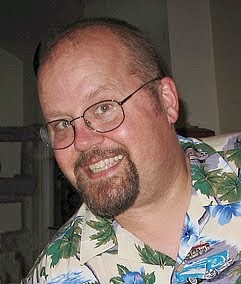A Public Dump
Yep! That’s what this is going to be; an open and
unabashed excoriation of a film that I flatly refused to finish. This is quite a rare occurrence for me. Even if I think that a movie really sucks, I
can usually muster the grit to endure it to the end. I've long felt that if I’m going to
offer an opinion on something, especially if it's negative, then my knowledge should be as complete
as possible. However, I was not willing
to make that sacrifice in this case. I immediately sensed that something was wrong, and my unease
grew exponentially. Finally, I had to leave the room. I think it was only fifteen or twenty minutes into the film.
 |
| This is exactly how I looked while watching it. |
I had never known that very particular sense of personal outrage that is experienced when a cherished book is turned into a mess of a movie. I had been disappointed with other films drawn from literary sources, but I was more forgiving because I understood the Herculean challenges involved in adapting certain works, “Dune” and “The Lord of the Rings” being excellent examples. However, “The Secret Garden” is not a sprawling epic spanning multiple generations and eons of time. It doesn’t have a massive cast of characters scurrying to and fro across alien landscapes filled with legendary battles between good and evil. It’s about a young girl and an old garden.
As a book, “The Secret
Garden” is a subtle, beautiful and inspiring reading experience. The main character's transformation from a
vile, selfish hellion into a sweet, altruistic angel is an absolute delight. However, her
journey is a moderate one. Real people are naturally slow to change, and the story takes its time to detail the stages
of her growth, and each tiny advance is allowed to take root before the next
step is taken. This lengthy process is
not impossible in the more limited time frame of the movies because the story
is very simple. The question is whether
or not the filmmaker cares to cultivate a more patient pace.
Unfortunately, director
Agnieszka Holland fails spectacularly. The
first sign of trouble appears in the opening credits: “based on the book.” Uh-oh!
Why would you need to alter anything?
“The Secret Garden” is not a complicated narrative. The book doesn’t take more than a week to
read. There’s no reason to compress or
abridge anything unless you don’t like the story. If you don’t, why make the film at all? If you do like the story, why would you do
the author and the fans the disservice of thinking that you can “improve” it? One cannot improve upon perfection, but alas, ego
often thinks otherwise.
Once the credits were over, my disappointment increased
rapidly. The story begins in India, where a young English girl named Mary is surrounded
by servants who attend to her every need.
However, despite all this attention, she is utterly alone. Her parents want nothing to do with her, and
this emotional neglect has devastating consequences. In the book, several chapters are devoted to
detailing Mary’s horrid existence, and this is crucial to demonstrate
how Mary has become such a miserable creature. More crucially, it encourages the reader to fervently hope for her eventual
deliverance from darkness. Her soul,
long wilted by neglect, may still have a chance to bloom.
In this film version, Mary’s
origin story races by breathlessly.
Her parents and all the servants die in an earthquake (?!) instead of an outbreak of
cholera. The earthquake is a
very poor substitute. It is too
contemporary of a disaster and makes Mary’s survival seem a random act of
chance, especially since she hides under a bed! The cholera outbreak makes more
sense given the time period, and it highlights the severity of Mary’s
isolation. If she had been loved, her
increased physical contact with her family would doubtless have resulted in her infection and death. The reason she survives is because
she was forgotten.
Director Agnieszka Holland also seems
to have forgotten the fact that audiences don’t need narration unless it describes something that is not taking place onscreen, yet Mary herself narrates the entire film. Not only is this unnecessary because we see
everything she talks about, but the narration has the effect of placing us in
the narrator’s head and thus, on her side.
We see the world from her point of view, which begs us to ally ourselves with her. However, we are not meant to like Mary in the beginning because she is decidedly
unlikable. Mary is a
detestable, shrieking brat. While the young actress succeeds in making Mary unpleasant, the narration makes her comes across as more misunderstood than misanthropic.
There are many other character misfires. I love Maggie Smith, but her portrayal of Mrs. Medlock is hideous. This character is somewhat temperamental in the book, but in the film she displays a disdain for children bordering on the violent. This is NOT the Mrs. Medlock whom I came to know and love! Other characters are also hastily sketched, and absent the peculiarities that made them interesting. Some, like Dickon, are introduced far earlier than necessary, thus cluttering the landscape with faces we don't yet need to see. Well, that's bloody well enough of that! Here's hoping that the BBC version at my local video store is a little more faithful. I have faith that it will, as the Brits tend to have a bit more respect for literary sources, especially their own!








No comments:
Post a Comment